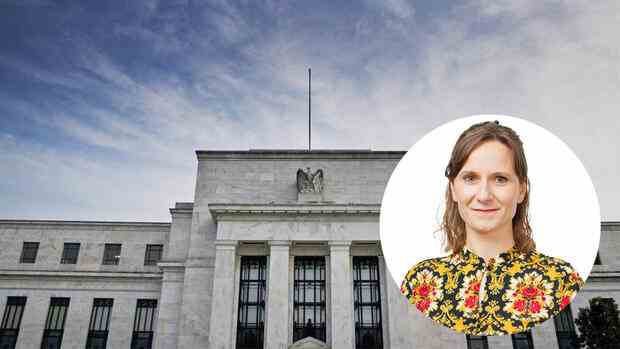The New York correspondent of the Handelsblatt is looking forward to the next step by the US Federal Reserve.
Many things went differently than planned for investors this year. The unprecedented boom in so-called meme stocks like Gamestop and AMC is long gone. Retail investors, who have had their big renaissance during the pandemic, are seeing big losses in their portfolios. No wonder that the young traders have withdrawn significantly from the market. Strategies such as “buy the dip”, i.e. buying on weak days because prices will soon rise again significantly, no longer work reliably.
Now the broader Santa Claus rally that many traders had been hoping for could also fail. Instead of “hope for Santa Clause” the mantra is now: “wait for the Powell recession”. Concerns that the US Federal Reserve (Fed) under Jerome Powell could send the economy into a recession have weighed on the stock markets for days.
At least the mood brightened a bit on Thursday. The leading US indices Dow Jones and S&P 500 were clearly up in the early hours of trading in New York. The gains in the tech-heavy Nasdaq index were even bigger. The Dax closed almost unchanged at 14,264 points.
The heads of the major US banks have also expressed surprisingly pessimism over the past few days. Goldman Sachs CEO David Solomon believes the economy is in for “a rough time”. Jamie Dimon, head of America’s largest bank JP Morgan Chase, expects a recession that could be “mild to severe”.
Top jobs of the day
Find the best jobs now and
be notified by email.
This will also make itself felt on the stock markets. A severe recession could send the S&P 500 another 25 percent slump, according to star economist Nouriel Roubini, nicknamed “Dr. Doom” wears. But he is not alone.
Persistently high prices are beginning to weigh on US consumer sentiment. That could spell a “rude awakening” for corporate earnings, warns Lisa Shalett, chief investment officer at Morgan Stanley’s wealth management firm. Investors should therefore continue to prepare for troubled times, emphasize the analysts at Wells Fargo. “Buy the dip” or even buy stocks and just hold them is not the right strategy for 2023.
The Fed acted more aggressively than it had in 40 years
The monetary policy decisions that will be made next week are trend-setting. Then the US Federal Reserve meets and economists assume that Powell will announce a rate hike of 0.5 percentage points.
That would be slower than in previous months. Monetary politicians have raised the key interest rate in large steps this year to a range of 3.75 to 4 percent. The interest rate rose by 0.75 percentage points each of the last four times. The Fed acted more aggressively than it had in 40 years.
And yet Wall Street’s enthusiasm about the central bankers’ slower action has quickly cooled. “Investors are worried because the economy is both too strong and too weak at the same time,” says independent capital markets expert Ed Yardeni.
The labor market has recently been surprisingly robust. On the housing market, on the other hand, the consequences of the high interest rates are being felt very clearly. It is therefore still uncertain how high the Fed will actually have to raise interest rates in the end in order to move inflation back towards its two percent target from the last 7.7 percent.
The signs on the bond markets are clearly pointing to a recession. The yield curve of the most important bonds currently shows an extremely inverse relationship – the short-term yields are therefore higher than the long-term, as is usually the case. This is seen as a warning signal for the economy.
More: Ten favorite stocks that stock market experts are now getting into
